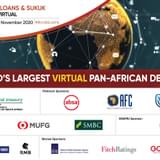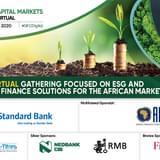Strengths
- Post-Recession Enthusiasm: The country is coming out of recession and with inflation trending downward, portfolios are beginning to see better returns
- FGN Transparency: Increased publishing of budget information, launch of investor portal and transparency in the FX market
- Strong Appetite for Structural Reforms: Both on a macroeconomic level and with respect to the capital markets, following the capital market master plan (CMMP) and the debt capital market development (DCMD) project.
- Re-opening of the Eurobond Market: The FGN Eurobond was oversubscribed while other top tier issuers including UBA and Zenith Bank are coming back to market and pricing very competitively
Weaknesses
- Overreliance on Oil: With oil prices trading at sub $45 (breakeven) there is increasing pressure on hard currency liquidity
- Monetary Policy Uncertainty: Lack of clarity on monetary policy and discrepancies in the money markets and de-facto rates continue to adversely influence investor appetite
- Government Crowding Out: FGN is the most frequent issuer offering the highest yields in the market. This has a knock-on effect on the attractiveness of non-sovereign debt
- Regulation, Processes and Platforms: The market isn’t currently geared for repeat issuers, with issuing timelines often stretching for over half a year
Opportunities
- Islamic Finance: A robust gateway to the GCC liquidity and an opportunity for financial inclusion. The country has a significant Muslim population. The FGN Sukuk currently being developed could be the benchmark issuance and set the pace for future issuers
- Sustainable Finance: The FGN is currently arranging its first Green Bond transaction. Whilst some would argue that sustainability isn’t top of the priority list, there is an opportunity to leapfrog with sustainable projects – of which there is a significant pipeline in the country
- AMCON2 and Loan Market Liquidity: Repackaging bad debt and distressed loans could be an opportunity to stimulate liquidity in the loan markets
- Pension funds: The market is sitting on NGN6.5tn in assets under management with a 200% growth in inflow/contributions over the last 6 months
- Deepening the Secondary Market: The market needs more high-quality securities and a wider diversity of assets and tenors (for instance, short term commercial paper), particularly retail investor-friendly products
Threats
- FX Risk and Overreliance on Hard Currencies: Continued hard currency borrowing may constrain the country’s ability for repayments in the future
- Following Through on Reforms: Failure to implement crucial reforms could see the country slide back into recession
- 2019 Elections: As focus shifts to the upcoming election, a mix of populist impulses and new spending initiatives could affect political and economic stability
- Increasing Debt Repayments: Over 60% of the sovereign’s tax income is spent re-paying debt









